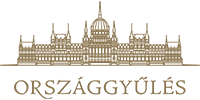
The Committee on Economics of the Hungarian National Assembly was represented by Vice-Chair Jenő Manninger and Committee Member Anita Potocskáné Kőrösi at the meeting, where all parliamentary chambers of the V4 countries were present. In his contribution, leader of the Hungarian delegation Jenő Manninger welcomed the continuity of the meetings of the V4 Economic Committees (referring to the meetings in Prague in 2016 and in Budapest in 2018). Concerning transport infrastructure, he emphasized that the development of the rail network is a key issue for Hungary and that high-speed rail lines—together with improving competitiveness and making social and economic progress—will play an important role in reaching the climate targets as well. Regarding the possible financial resources, he underlined that for Hungary it is very important to supplement relevant EU regulations, and it should be done by joint action of the V4 countries. In her contribution, Anita Potocskáné Kőrösi welcomed that one of the main priorities of the Czech V4 presidency is supporting research, development and innovation and praised the importance of cooperation and joint action of the V4 countries in this respect. She highlighted the significance of moving towards the digital economy, the Horizon Europe programme as a possible source of funding, and as for the countries with a lower innovation performance she underlined the importance of a minimum wage for researchers.
As host of the meeting, Chair of the Economic Committee of the Czech Chamber of Deputies Radim Fiala stressed the outstanding role of high-speed rail lines in transport infrastructures as well as the necessity of the cooperation of the V4 countries in the distribution of the EU funds. With regard to energetics, he stated that Czechs look at nuclear power as a clean source of energy that is necessary for the energy mix. On the topic of innovation, he underlined the importance of exchange of experience and added that the aim of the Czech Republic is to become one of the 20 most innovative countries of the world by 2030.
Chair of the Infrastructure Committee of the Polish Senate Jan Hamerski reported that they do trust in the implementation of high-speed rail lines, however, the specific technical questions will be answered by a study on possible implementation to be finalized in 2020.
Chair of the Slovak Economic Committee Jana Kiššová raised the importance of an innovative entrepreneurial environment, and pointed out that beyond increasing spending on innovation, monitoring of the results achieved should also be emphasized.




